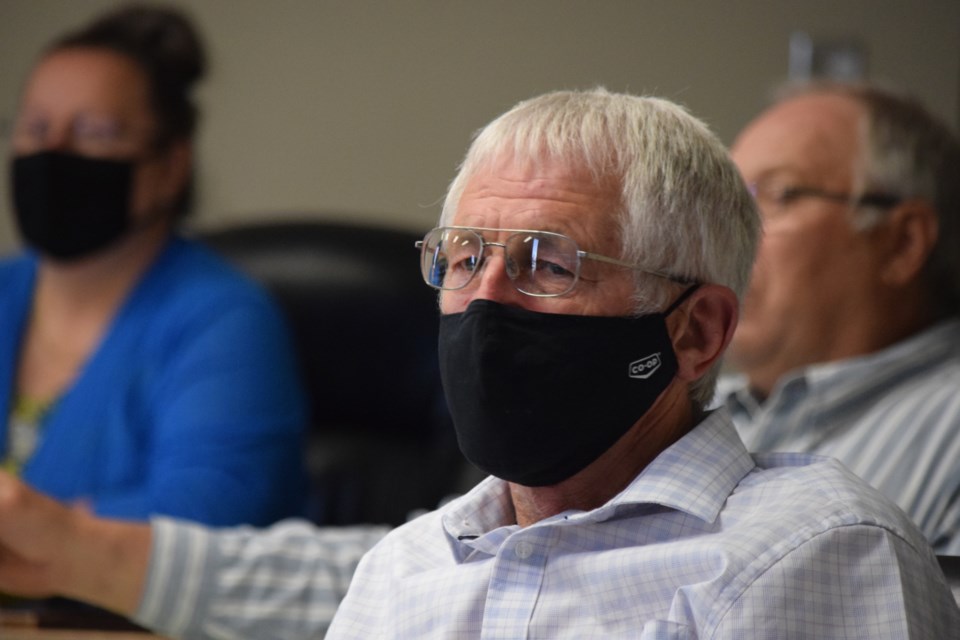BARRHEAD-County of Barrhead councillors are hoping a new policy will help boost the municipality's financial prospects.
At their June 1 meeting, councillors approved a recommendation by the policy committee to approve the county's Non-Residential Tax Incentive Bylaw by 6-1. Coun. Walter Preugschas cast the opposing vote.
Council hopes the bylaw will increase economic activity in the county through an incentive program where business owners would see their non-residential property tax reduced on a graduating scale based on the amount they expand or improve their operations.
County manager Debbie Oyarzun said in 2019, the United Conservative Party (UCP) introduced a pair of Bills (Bill 7 and Bill 29) that helped municipalities attract potential investment.
Bill 7 (Municipal Government Property Tax Incentives Amendment Act) allows municipalities the flexibility to offer tax incentives to businesses and industry, specifically on non-residential properties. Bill 29 (Municipal Government Machinery and Equipment Tax Incentives Amendment Act) expands the ability of municipalities to apply multi-year property tax incentives to machinery and equipment properties.
For both bills, the time limit for any tax incentive, whether it is exemption or deferral, is 15 consecutive years.
"We had the authority before under the [Municipal Government Act (MGA)], but it was limited and prescriptive," Oyarzun said.
In 2021, the county's non-residential assessment for land and improvements, i.e. commercial or industrial properties, was approximately $34 million, with the majority of accounts assessed at less than $200,000. Three properties had assessments valued at more than $2 million. In 2021, the county's machinery and equipment (M&E) assessment value was about $6 million on four properties.
Oyarazun described the machinery and equipment classification as "anything used for manufacturing and processing".
The committee used four guiding principles or goals in their discussions.
The first, Oyarzun said, is to attract new economic investment to the county and encourage the expansion of existing non-residential development.
"Considering that our non-residential assessment, including M&E, is about $40 million, with most properties sitting at the $200,000 mark. We want to increase that assessment," she said.
The other goals of the bylaw were to diversify the county's economy, reducing the reliance on the energy sector and support overall community growth.
Oyarzun said the need for municipalities to become less reliant on the energy sector was self-evident as they have been forced to write off hundreds of thousands in unpaid linear property taxes.
She also noted that a similar tax-exemption program for the energy sector already exists.
"[The province] has mandated that municipalities oil and gas companies provide a three-year tax exemption for any new oil and gas assessment and development," Oyarzun said.
Preugschas asked if the bylaw allowed the county to extend that tax exemption for energy companies involved in new development beyond three years.
Oyarzun and reeve Doug Drozd, a member of the policy committee, said no, adding they purposely excluded energy companies from the bylaw.
"But that does not exclude the possibility for council if they decided they wanted to continue to offer energy companies wishing to expand their operations, in the future," Oyarzun said, noting council could either amend the bylaw or draft a new one.
Eligibility and how the bylaw would work
Under the bylaw, a non-residential property that made improvements through new construction or machinery and/or replacing or upgrading a facility that increased the assessment value would be eligible to receive a portion of their property tax exempted.
In the first year, changes and additions to the property would get a 100 per cent exemption. In the second and third year, the amount exempted would vary depending on the value of the change. In the second year, improvements worth $100,001 and $500,000 would see a 50 per cent exemption. For increases of assessment value from $500,0001 and $1,000,000, the exemption increases to 75 per cent. If the assessed value of the improvements is worth more than $5,000,000, companies would see a 100 per cent exemption.
In the third year, assessed improvement of $5,000,000 continue to receive a 100 per cent exemption, while improvements from $1,000,001 to $5,000,000 receive a 50 per cent exemption.
The exemption does not apply to the value of the land itself or the school or seniors housing requisition that the province requires municipalities to collect on their behalf. Any exemptions would be based on a company's 2022 assessment.
Oyarzun said the county is only one of a few municipalities that have such a bylaw, adding that the majority of those that do the eligibility and application process is very complicated.
"We might be able to capitalize on that," she said.
Drozd agreed, saying there might be companies that are on the cusp of a major expansion project or considering relocating "and this might just push them over the edge in a good way."
He added the fact the county has only four businesses in the M&E category emphasizes the need for the municipality to try to attract more investment.
Preugschas agreed with the concept but felt the graduated investment scale was unfair to those making smaller improvements.
"I'm not sure whats the answer," he said. "I don't like that we are treating people differently. I think it has to be more fair and equal across the categories."
Deputy reeve Marvin Schatz, while sympathizing with Preugschas, said by putting people and companies who make a relatively small investment or improvement to their properties they could be chasing away those willing to make a larger investment.
"I can see them saying, ‘why should I invest $5 million if I am going to see the same exemption as someone who only invested $10,000?’," he said.
Coun. Darrell Troock believed the graduated tax exemption was "more than fair."
"Someone adding a $20,000 to $100,000 is not a huge investment today," he said. "In the first year, everyone is getting a 100 per cent exemption ... and after that, you get a percentage off based on your investment."



